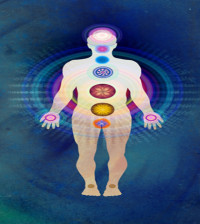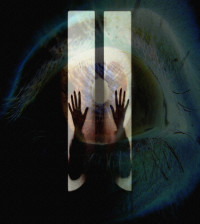- 5 Tips To Finding Peace Within Yourself
- The Do’s and Don’ts of Learning How to Accept Yourself
- How to Find Your Inner Peace and Transform Your Life
- 8 Benefits of Having an Open Mind and How to Get One
- Learn How To Be A Happier Person
- What Is The Meaning Of Life?
- Laws of Abundance – The Riches of Love and Joy
- How to Be Laid Back By Following These 9 Simple Strategies
- The meaning of confucius’ golden rule – 4 practical ways of living it
- 3 methods of unleashing the power of contentment in your life
Effective and Commonly Prescribed PTSD Tools

Post-traumatic stress disorder can be triggered by a variety of stressful or terrifying events. The patient may suffer from flashbacks, anxiety or nightmares that occur when they are reminded of the event. These symptoms can last for months or years after the initial trigger and can have a profound negative impact on your life. PTSD is quite common in professions such as active military service where people are regularly exposed to stressful stimuli. Being aware of what PTSD tools are available can help you seek the assistance you need to manage any symptoms you might be dealing with.
Exposure Therapy
One of the most commonly utilized PTSD tools is exposure therapy, which allows the patient to come face to face with the trigger which is terrifying them. It is important to set up several safety precautions before attempting this therapy to ensure your safety.
- Only undergo exposure therapy under the direct supervision of a psychiatric professional
- Take time to determine what triggers your PTSD symptoms so you can face them on your terms
- Begin your therapy in a controlled situation where it will be easy for you to walk away if the exposure is too intense
Many therapists have begun to use virtual simulators to allow patients to face their fears in an artificial setting. This allows you to interact with the environment that caused your trauma, and can possibly be used to change the outcome you experienced to help replace unpleasant memories with those that are more neutral. This may be combined with eye movement desensitization and reprocessing therapy which guides the patient through the traumatic experience so they can process the fear more effectively.
Eliminating Stress
Many people suffering from PTSD also experience anxiety or depression. Treating these symptoms is essential to the recovery of PTSD. Meditation is often recommended to patients who are trying to eliminate these symptoms. Meditation alters the brain chemicals, boosting
GABA, DHEA, endorphins and melatonin which can help boost our mood naturally, reducing stress and allowing your body to maintain a healthy balance which can ward off other side effects. Research has shown that PTSD sufferers who took on a regular meditation routine were able to sleep more soundly at night, eliminating frightening nightmares or fitful dreams that were caused by the trauma. They were also able to better process their therapy, aiding in their ability to address the events that caused their fear.
Therapy Groups
One of the most important PTSD tools is adequate support. Someone dealing with a mental challenge may feel embarrassed, causing them to avoid getting help. Working with a therapy group or getting your loved ones involved in your treatment can help erase the stigma surrounding your condition. Your therapist may be able to recommend a PTSD support group that was arranged for people who have gone through similar circumstances to your own. You can share stories and help each other work through your fear so you can move on and better adjust to a world where you can feel safe.
Medication
Antipsychotic and antidepressant medication are frequently given to those with crippling symptoms of PTSD. These drugs should only be provided by a professional, and are usually restricted to those with severe symptoms such as outbursts or insomnia. If you decide to use medication to help manage your symptoms, work closely with your doctor to determine a proper dosing routine. Many victims of PTSD tend to self-medicate with pills, alcohol or illegal drugs. Work with someone you can talk openly with about these temptations so you can do everything you can to maintain a safe and healthy treatment routine.








































You must be logged in to post a comment Login